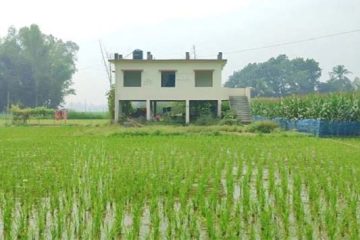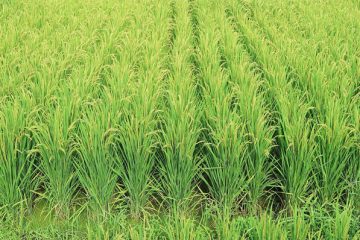Kawsar Khan

The supply of stone chips has dropped in recent times raising its prices in local markets because of a partial government ban on stone collection from two rivers in Sylhet.
Since February 2, the Department of Environment (DoE) imposed a ban on the use of machines to collect stone from the Piyain and Dauki rivers in Gowainghat Upazila in Sylhet, a source of 75 percent of the country’s stone supply.
Such a ban came after objections voiced by environmentalists.
They say indiscriminate use of machines for stone collection from these sites poses a threat to the rivers and adjacent areas.
According to stone merchants, Jafflong and Volaganj are the main sources for natural stone.
“Although the government’s formal ban was imposed not many days back, the authorities have not been allowing us to use machine for stone collection for the last one year, which led to doubling stone chip prices,” said Abdul Matin Khan, general secretary of Bangladesh Stone Merchants Association (BSMA).
The current price of per cubic feet (CFT) of crushed stone is around Tk 100 in Dhaka, it was priced between Tk 55 and Tk 65 a year ago.
At the same time, volatile stone prices have also prompted a 10 percent price hike in ready mix concrete over the last two weeks.
“Now the price of ready-mix concrete per CFT (3000 pounds per square inch) is between Tk 175 and Tk 180, a 10 percent more than its price last week,” said an official of Mir Ready-Mix Concrete.
Official sources said the collection of stone via machine is forbidden, but there is no embargo on its manual collection, the only means of stone collection even three years ago.
Stone merchants say stones collected manually fall short of meeting the country’s rising demand for the construction material. In addition, the riverbed has also gone down by 30-40 feet, which lengthens the process.
“If 20 people can collect a truck of stone, or 5 tonnes a day, an excavator can collect 500 tonnes,” said Matin.
The merchants said they could collect 3-4 lakh CFT of crushed stone from the site every day, pointing also to the fact that the manual method would reduce extraction by 90 percent.
As the supply of stone has reduced, about 200 cargo vessels, dedicated to carry extracted stones, are now sitting idle, sector people said.
They said the country’s demand for stone can be met either by imports or mining, if the natural source is stopped.
“The import and use of the country’s mines will inflate the prices of stone manifold. Moreover, mined stones are heavy and unsuitable for construction,” said Abdul Ahad, the BSMA president.
Talking on the issue, Mohammed Shiblee, deputy director of the Sylhet Division Office of DoE, said the government was prompted to take such a move as the use of machines changed the course of the Piyain river to some extent and deteriorated the environment.
When holes are dug out on the riverbed, the stone collectors pile sand on a nearby place, which diverts the stream and risks river erosion, flash floods, soil pollution of nearby crop lands and tourism at Jaflong, a popular tourist destination.
“A tectonic fault runs beneath the river Dauki, which may pose earthquake threats in the area. So the DoE decided to examine the risks associated with extraction,” Shiblee added.
He, however, said the ban was temporary. The government would soon form an expert committee, to help devise safer and environment-friendly forms of stone extraction.
He also said the decision was in favour of the poor labourers in the area, as they were previously suppressed by influential businessmen who used machines to conduct large-scale extraction.
Real Estate and Housing Association of Bangladesh (REHAB) President Tanveerul Haque Probal said the government should form the committee and immediately take a pragmatic decision on the matter.
Courtesy of www.thedailystar.net






